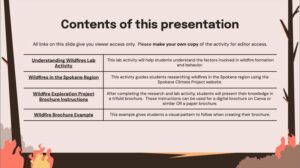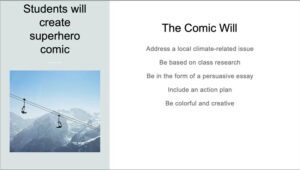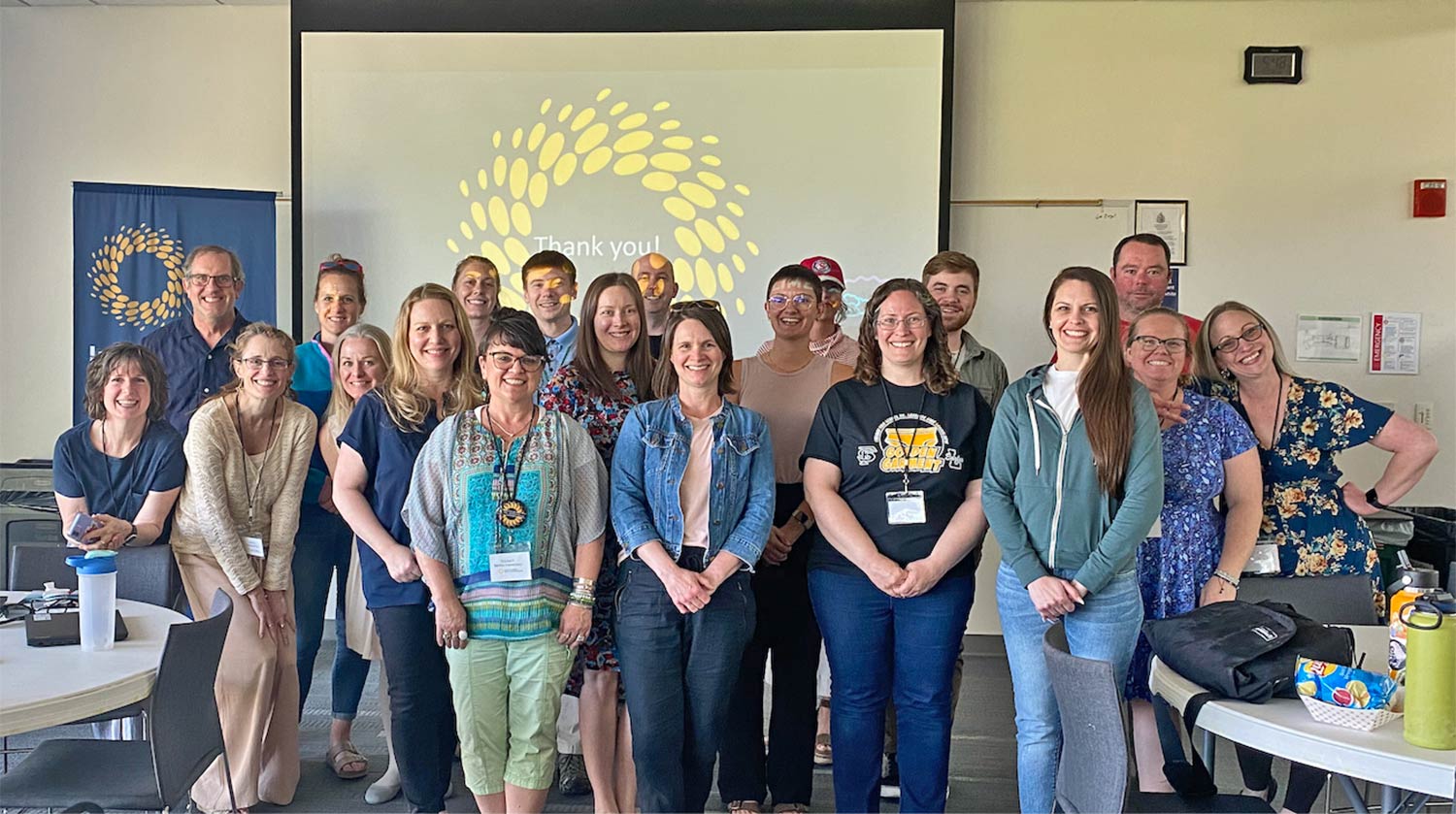
Student Action Project Example #2 Wildfire Smoke – Katharine Higgins, Jesse McCorkle, and Amy Hamblet
From February to May 2024, 23 K-12 teachers from the Spokane area met to learn about different climate topics and how to teach climate solutions in their own classrooms. The workshop, hosted by the Gonzaga Institute for Climate, Water, and the Environment, included both in-person and online sessions and utilized a collaborative online space to allow teachers to work together and share resources through discussion posts and assignments. Throughout the workshop, teachers developed student action projects to be implemented within their own classrooms.
The workshop sessions covered topics such as place-based pedagogy, climate solutions, the intersection of climate justice and local phenomenon, and value systems. Each session covered reading materials, resources, new content, and integrated time for teachers to collaborate with their team members to focus on developing their own student action projects.

Student Action Project Example #1 Comic Strip – Cindy Simmons
Teachers were encouraged to develop student action projects as the culmination of their learning throughout the workshop. Example student action projects included building a climate section in the school library, creating a school garden, and measuring and collecting data on surfaces temperatures around school grounds for student analysis. The action projects allowed teachers to incorporate climate learning into existing curriculum. For instance, one teacher chose to take an existing writing activity used to help students create evidence-based arguments and adapt it to fit climate content. Students create a comic centered around a climate-related issue and write a persuasive essay including an action plan around that issue. Students will be able to learn about a climate issue that is relevant to them, how to use evidence to back their claims, and what solutions-based actions might look like.
Overall, the cohort model for Teaching Climate Solutions in the Inland Northwest proved to be impactful for participating teachers. One teacher noted, “I feel like every session had something that helped me view climate change and my personal teaching differently.” Another teacher noted, “this workshop greatly improved my awareness and understanding of issues surrounding climate justice and equity.” Teachers left the workshop feeling empowered and hopeful around the topic of climate change and ready to translate those feelings into their teaching.

